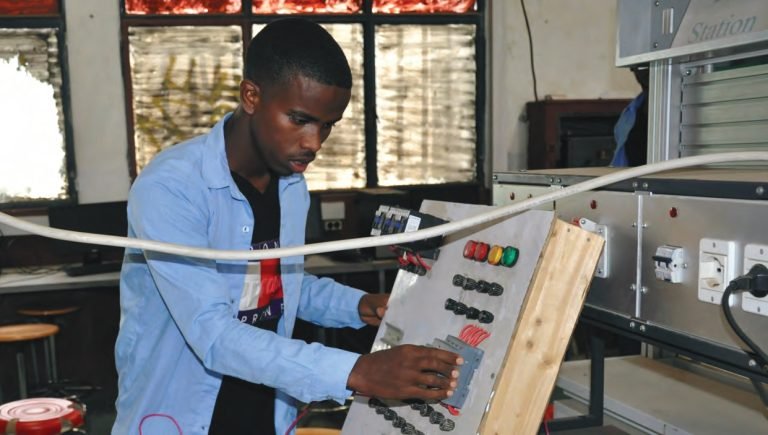Building New Footholds: A Two-Way Street
Nothing disenfranchises young people more than illiteracy. The impracticality of coming of age in the digital era without being able to write one’s name or read a sign soon gives way to the impossibility of a viable and secure future. The crisis is further compounded by the stigma of being young and illiterate, forcing these youth further underground or remain on the fringes.
At 27, Serke Hamedi is a single mother of two who is also physically challenged. She grew up in a rural town without access to primary education. When she moved to the city of Dessie, she ended up homeless and unemployed. Living on the generosity of the community, school was the furthest thing from her mind. That is, until she was refereed to Kefeta’s functional literacy training in Dessies. Focused on providing instructions in reading, writing, calculation, and basic problem-solving skills required to live an effective life, the program has been steadily attracting youth between the ages of 15 and 29.
Bravely overcoming her self-doubt, Serke enrolled in class for the first time in her life. “I couldn’t think of where to even begin. Not being able to even write my name and having to rely on using my fingerprint as my signature used to be difficult and embarrassing,” she says. Now, she invests her time and happily pays 60 ETB for transportation that brings her to the classroom. “I have not missed a single session because of how important I think this opportunity is. It has made me equal with everyone. I have always been confident, but education has given me what I needed in order to feel like I am like everybody else despite my circumstances.” The Dessie literacy program is more than a place designed to help tackle youth illiteracy. The instructors are new graduates who need to gain classroom experience and practical
training to jump start their careers. Kefeta hires these new teachers who then gain much needed training in teaching, lesson planning, and classroom management—increasing their employability in a competitive
job market.


Nur Eshete, 26, is one of the instructors who is now proficient in theoretical and practical approaches as a new teacher. He is passionate about his career. “I have seen many changes in my students. One of them had never even stepped foot in a school building. Now he can differentiate the letters and is able to write his name and has started reading.” He notes that
the center also serves as a pipeline for students to enter the world of formal education. Serke is sentimental about the investment her teachers made in her. “I didn’t even know how to hold a pen when I first came here. Our instructor went as far as holding my hand to teach me the
proper way.” This Kefeta initiated program in classrooms around Dessie has now engaged two teachers as Kefeta interns and has a student body of 70. In Dessie, education is slowly healing many layers of complex wounds.

